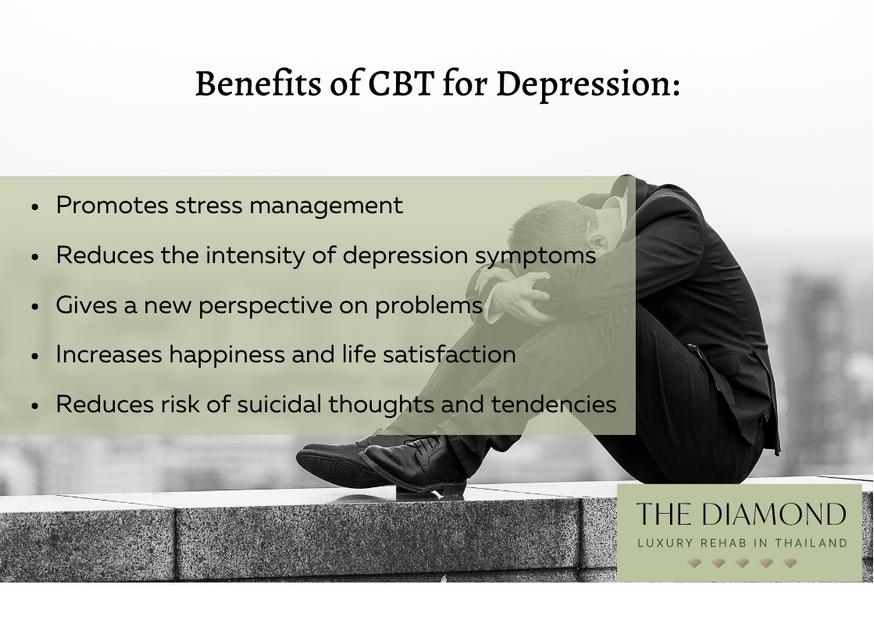Benefits of Cognitive Behavioral Therapy
Cognitive Behavioral Therapy (CBT) is a widely recognized and effective form of psychotherapy that focuses on the connection between thoughts, feelings, and behaviors. It is an evidence-based treatment approach that has been proven to be beneficial for a wide range of mental health conditions. In this article, we will explore the numerous benefits of CBT and how it can help individuals improve their overall well-being.
Enhanced Self-Awareness and Understanding
One of the key benefits of CBT is that it helps individuals develop a deeper understanding of their own thoughts, emotions, and behaviors. Through the therapeutic process, individuals learn to identify negative thinking patterns and irrational beliefs that may contribute to their distress. By gaining insight into these patterns, individuals can challenge and reframe their thoughts, leading to more positive and adaptive behaviors.
Effective Problem-Solving Skills
CBT equips individuals with effective problem-solving skills that can be applied to various areas of life. By learning how to identify and evaluate different solutions, individuals can develop a more rational and systematic approach to problem-solving. This can help individuals overcome obstacles, make better decisions, and improve their overall quality of life.
Improved Coping Strategies
CBT provides individuals with a wide range of coping strategies that can be used to manage stress, anxiety, and other negative emotions. These strategies may include relaxation techniques, mindfulness exercises, and cognitive restructuring. By practicing these techniques, individuals can develop healthier coping mechanisms, reduce emotional distress, and enhance their overall well-being.
Targeted Treatment for Specific Mental Health Conditions
CBT is a highly adaptable and flexible treatment approach that can be tailored to address specific mental health conditions, including depression, anxiety disorders, phobias, and post-traumatic stress disorder (PTSD), among others. The structured nature of CBT allows therapists to target and address the unique needs of each individual, resulting in more personalized and effective treatment outcomes.
Long-Term Results and Relapse Prevention
Research has shown that the benefits of CBT extend beyond the duration of therapy. By equipping individuals with effective coping strategies and problem-solving skills, CBT can help individuals maintain their progress and prevent relapse in the long term. The skills learned in therapy can be applied to future challenges, allowing individuals to lead more fulfilling and resilient lives.
Collaboration and Empowerment
CBT is a collaborative therapy approach that emphasizes the active involvement of the individual in their own treatment. Therapists work together with individuals to set goals, develop strategies, and monitor progress. This collaborative process empowers individuals to take an active role in their own mental health and well-being, fostering a sense of ownership and self-efficacy.
Versatility and Integration with Other Therapies
Another advantage of CBT is its versatility and compatibility with other therapeutic approaches. CBT techniques can be integrated with other modalities, such as mindfulness-based therapies or psychodynamic therapy, to create a comprehensive and tailored treatment plan. This allows therapists to adapt the therapy to meet the unique needs of each individual, maximizing the effectiveness of the treatment.

Cognitive Behavioral Therapy offers numerous benefits for individuals struggling with various mental health conditions. From enhanced self-awareness and problem-solving skills to improved coping strategies and long-term results, CBT provides individuals with the tools they need to overcome challenges and improve their overall well-being. If you are seeking effective and evidence-based therapy, consider exploring the benefits of Cognitive Behavioral Therapy.
Frequently Asked Questions about the Benefits of Cognitive Behavioral Therapy
1. What is Cognitive Behavioral Therapy (CBT)?
Cognitive Behavioral Therapy (CBT) is a form of psychotherapy that focuses on the connections between thoughts, feelings, and behaviors. It helps individuals identify and change negative patterns of thinking and behavior to improve their mental health and well-being.
2. What are the benefits of Cognitive Behavioral Therapy?
Cognitive Behavioral Therapy has several benefits, including:
Effective treatment for various mental health conditions
Helps individuals develop coping strategies
Provides tools to manage stress and anxiety
Improves problem-solving skills
Enhances self-esteem and self-confidence
3. Which mental health conditions can be treated with CBT?
Cognitive Behavioral Therapy is commonly used to treat conditions such as:
Depression
Anxiety disorders
Post-traumatic stress disorder (PTSD)
Obsessive-compulsive disorder (OCD)
Eating disorders
4. How long does Cognitive Behavioral Therapy typically last?
The duration of Cognitive Behavioral Therapy varies depending on the individual and the specific issues being addressed. It can range from a few weeks to several months.
5. Is Cognitive Behavioral Therapy effective?
Yes, Cognitive Behavioral Therapy has been extensively researched and proven to be effective in treating various mental health conditions. It is considered one of the most evidence-based forms of psychotherapy.
6. Can Cognitive Behavioral Therapy be used in combination with medication?
Yes, Cognitive Behavioral Therapy can be used in conjunction with medication. It is often recommended as a complementary treatment to medication for better outcomes.
7. How does Cognitive Behavioral Therapy help with managing stress?
Cognitive Behavioral Therapy helps individuals identify and challenge negative thought patterns that contribute to stress. It teaches effective coping strategies, relaxation techniques, and problem-solving skills to manage stress more effectively.
8. Is Cognitive Behavioral Therapy suitable for children and adolescents?
Yes, Cognitive Behavioral Therapy can be adapted to suit the needs of children and adolescents. It is often used to treat conditions such as anxiety disorders, depression, and ADHD in younger populations.
9. Are the benefits of Cognitive Behavioral Therapy long-lasting?
Yes, the benefits of Cognitive Behavioral Therapy are often long-lasting. The skills and strategies learned during therapy can be applied throughout life, even after therapy has ended.
10. How can I find a qualified Cognitive Behavioral Therapist?
You can find a qualified Cognitive Behavioral Therapist by seeking referrals from your primary care physician, contacting mental health organizations, or using online directories of licensed therapists in your area.




